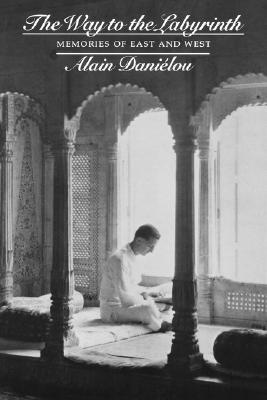Alain Danilou was an accomplished pianist, dancer, player of the Indian vn, painter, linguist and translator, photographer, and world traveler. To these attainments he has added The Way to the Labyrinth, translated into English by Marie-Claire Cournand. Born of a haute-bourgeoise French family--his mother an ardent Catholic, his father an anticlerical leftwing politician, his older brother a cardinal--Danilou spent a solitary childhood. Escaping from his family milieu, he went to Paris, where he fell in with avant-garde, bohemian, sexually liberated circles, among whose luminaries were Cocteau, Diaghilev, Max Jacob, and Maurice Sachs. But however fervently he plunged into various activities, he felt some other destiny awaited him. After a number of journeys, some of them highly adventurous, he found his real home in India. He spent twenty years there, fifteen of them in Benares on the banks of the Ganges. There he immersed himself in the study of Sanskrit, Hindu philosophy, music, and the art of the ancient temples of Northern India, and converted to the Hindu religion. But times changed, and soon after India gained its independence, he returned to live again in Europe and devoted much of his great energy to the encouragement of traditional musics from around the world.

The Way to the Labyrinth: Memories of East and West
Alain Danilou was an accomplished pianist, dancer, player of the Indian vn, painter, linguist and translator, photographer, and world traveler. To these attainments he has added The Way to the Labyrinth, translated into English by Marie-Claire Cournand. Born of a haute-bourgeoise French family--his mother an ardent Catholic, his father an anticlerical leftwing politician, his older brother a cardinal--Danilou spent a solitary childhood. Escaping from his family milieu, he went to Paris, where he fell in with avant-garde, bohemian, sexually liberated circles, among whose luminaries were Cocteau, Diaghilev, Max Jacob, and Maurice Sachs. But however fervently he plunged into various activities, he felt some other destiny awaited him. After a number of journeys, some of them highly adventurous, he found his real home in India. He spent twenty years there, fifteen of them in Benares on the banks of the Ganges. There he immersed himself in the study of Sanskrit, Hindu philosophy, music, and the art of the ancient temples of Northern India, and converted to the Hindu religion. But times changed, and soon after India gained its independence, he returned to live again in Europe and devoted much of his great energy to the encouragement of traditional musics from around the world.